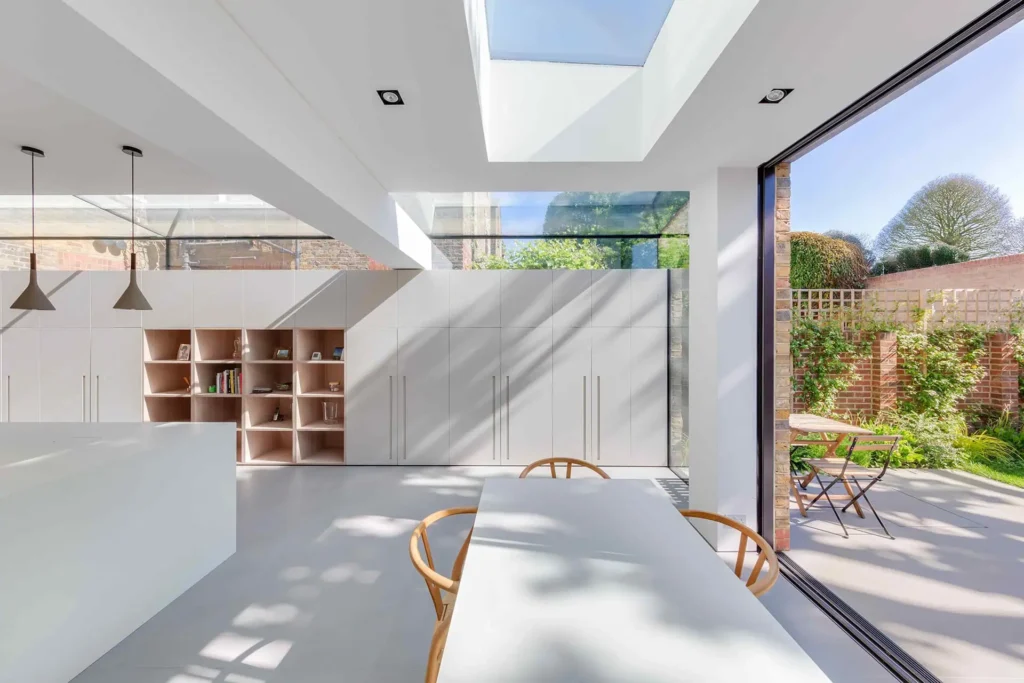Unlock the hidden potential of your property by borrowing extra on your mortgage – the smart way to fund those game-changing renovations without breaking the bank.
Understanding Your Home Equity Borrowing Options
In today’s dynamic UK property market, homeowners are increasingly turning to mortgage-based solutions to fund their renovation projects. With property values in regions like Kent showing steady growth – approximately 8.3% year-over-year in 2023 – many homeowners are sitting on significant equity that could be leveraged for home improvements. Understanding the various options available for borrowing against your property is crucial for making an informed decision that aligns with your renovation goals and financial circumstances.
Home Equity Loans vs. HELOCs
When considering additional borrowing on your mortgage for renovations, two primary options emerge: home equity loans and Home Equity Lines of Credit (HELOCs). Each offers distinct advantages depending on your specific needs:
- Home Equity Loans: These provide a lump sum with fixed interest rates, typically ranging from 4.5% to 6.5% in the current UK market. Ideal for single, well-defined renovation projects.
- HELOCs: Offer flexible access to funds with variable rates, currently starting from 5.5%. Perfect for phased renovation projects or when exact costs are uncertain.
- Loan-to-Value (LTV) Considerations: Most UK lenders allow borrowing up to 85% of your property’s value, though some may go higher for strong applications.
Special Renovation Mortgage Programs
Several specialised mortgage products cater specifically to renovation projects. In the UK market, these include:
- Further Advance: Additional borrowing from your existing lender
- Renovation Mortgages: Specific products designed for major home improvements
- Self-Build and Renovation Mortgages: Suitable for extensive renovation projects
- Green Home Improvement Loans: Special rates for energy-efficient upgrades
Smart Ways to Finance Your Home Improvements
Making the right choice about financing your renovations can significantly impact both your monthly outgoings and long-term financial health. Current market data shows that homeowners who carefully plan their renovation financing typically save 15-20% on interest costs compared to those who use alternative funding methods like personal loans or credit cards.
Cash-Out Refinancing: Is It Right for You?
Cash-out refinancing has gained popularity in the UK market, particularly with current property values at historic highs. This option allows you to:
- Replace your existing mortgage with a larger loan
- Access up to 90% of your property’s value (subject to lender criteria)
- Potentially secure better interest rates than your current mortgage
- Consolidate other debts alongside funding renovations
Alternative Financing Options
While mortgage-based borrowing often offers the most competitive rates, alternative options might be more suitable in certain circumstances:
- Personal loans: For smaller renovation projects (typically under £25,000)
- Credit cards with 0% interest periods: Suitable for short-term funding
- Specialist renovation loans: Offered by some UK lenders for specific improvements
Maximising Your Renovation Investment
Research shows that strategic home improvements can add up to 20% to your property’s value. Understanding which renovations offer the best return on investment is crucial when borrowing additional funds.
Value-Adding Improvements
- Kitchen renovations: Average ROI of 50-70% in the UK market
- Bathroom upgrades: Typically adds 4-5% to property value
- Loft conversions: Can increase home value by up to 20%
- Energy efficiency improvements: Growing in importance with new EPC regulations
Budget Planning and Project Management
Effective budget management is crucial when using borrowed funds for renovations. Recent studies indicate that 35% of renovation projects exceed their initial budget by 10-20%. Consider these essential planning steps:
- Include a 10-15% contingency fund in your budget
- Obtain multiple quotes from reputable contractors
- Phase projects if necessary to manage costs
- Consider seasonal timing for better contractor availability and pricing
Making the Right Choice for Your Situation
The decision to borrow extra on your mortgage requires careful consideration of your current financial position and future plans. Factors to evaluate include your existing mortgage terms, current interest rates, and the potential impact on your monthly payments.
Assessing Your Financial Position
Before proceeding with additional borrowing, consider:
- Current mortgage balance and terms
- Available equity in your property
- Monthly income and existing commitments
- Long-term financial goals
Working with Professional Advisors
Professional guidance is invaluable when making significant financial decisions about property improvements. Seek advice from:
- Mortgage advisors for financing options
- Surveyors for property valuation
- Architects or designers for renovation planning
- Tax advisors for understanding implications
Taking the Next Steps
Ready to explore borrowing extra on your mortgage for renovations? Here’s your action plan:
- Review your current mortgage documentation
- Gather recent property valuations
- Consult with mortgage advisors about available options
- Obtain detailed renovation quotes from contractors
- Consider timing and phasing of works
- Compare different lender offerings
Remember, successful renovation financing requires careful planning and consideration of all available options. With property values in Kent and surrounding areas continuing to rise, investing in your home through smart borrowing could be a strategic move for both immediate enjoyment and long-term value enhancement.
FAQ
How much is too much for a renovation?
Consider the overall value of your home; a common rule of thumb suggests that homeowners should not spend more than 10-15% of their home’s value on renovations.
What is illegal renovation?
Unpermitted work refers to any construction, renovations, remodels, or additions made without the required local building permits. Examples include unpermitted additions or DIY electrical and plumbing upgrades.
Sources
[1] https://www.bankrate.com/home-equity/home-equity-for-improvement-renovation/
[2] https://listwithclever.com/real-estate-blog/can-you-get-a-home-loan-for-more-than-the-purchase-price/
[3] https://crosscountrymortgage.com/mortgage/loans/renovation/renovation-heloc/

